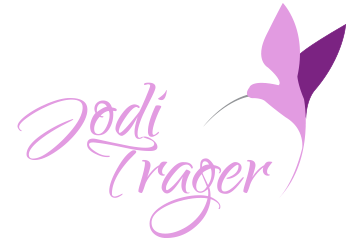The Fourth Trimester
You’re officially a mother now and you can’t stop gazing in awe at your bundle(s) of joy since you arrived home. You’re also sleep deprived, recovering from childbirth, and likely overwhelmed by all the changes you are suddenly facing.
You have many new tasks to tackle. These include: establishing your baby’s (or babies’) routine (and one for yourself), making often difficult decisions about nursing-pumping-using formula and perhaps second-guessing your choices, trying to distinguish cries, and merely discovering what works or doesn’t work both for you and your infant(s) in general.
At the same time, your hormones are out of whack, and like many other women, you may be experiencing the “baby blues”; you may find that you’re crying frequently, and perhaps you aren’t even sure why, and that you’re irritable, moody and exhausted. If you are a first-time mother, you are also likely clueless about what to do in certain situations, and may feel scared and even incompetent when it comes to your new responsibilities.
Even with the “easiest” of newborns, your life has dramatically changed overnight.
Postnatal Support Can Help You With:
- Establishing healthy routines for you and your baby(ies) (i.e. feeding and sleep for baby as well as your own diet and sleep)
- Choosing and implementing a feeding method that works for you and your baby/babies, and tackling any related challenges that arise
- Supporting father/partner’s mental health through the
transition of parenthood
- Incorporating mindful parenting into your day-to-day routine
- Navigating the mommy role for the first time
- Determining how to spend your days meaningfully
- Challenges with body changes (image, sexuality, and intimacy)
- Bolstering infant attachment and bonding
- Preparing for what can be expected along the way (i.e. milestones)
- Self-care and the balancing act between your own needs and those of your child(ren)
- Maintaining a nurturing, supportive relationship with your partner as both co-parents and individuals
Postpartum Depression
Postpartum depression (PPD) does not mean just having bad days, nor is it something you can “snap out of” or simply “get over”. Perhaps it has been two or more weeks and you feel increasingly overwhelmed with emotions. Instead of thinking, “This new mom thing is hard!” you’re thinking, “I can’t do this and I’m never going to be able to!” People might have told you, “It’s just your hormones,” but something really is not feeling right.
You might be thinking that your baby(ies) deserves better, and you may be disillusioned because the happiness you expected to feel and/or the connection that you thought you would feel to your baby do not match up to your prior expectations. You might even be thinking that your baby(ies) would be better off without you, that you’re going crazy, have ruined your life, or have lost your former self forever. It is also not uncommon to have scary thoughts about you and/or your baby(ies) and this is terrifying you.
Other Symptoms of Postpartum Depression May Include:
- Excessive crying
- Anger
- Hopelessness
- Feeling empty or numb
- Guilt
Postpartum Anxiety
Postpartum anxiety (PPA) is not just feeling worried or nervous sometimes. It is anxiety that produces and/or is fueled by unstoppable thoughts. You might be afraid to be alone with your baby(ies), worry constantly, or check your baby(ies) or other things all the time. You may find that it is hard to eat, and that you suffer from headaches, stomachaches, nausea, and/or panic attacks.
Something feels terribly wrong, you’re scared, and it feels like you’re losing your mind. You could even be questioning if you are the person you thought you were before having a baby. You don’t want to reach out to friends and family because you fear they will judge you, or if you do reach out, there is no amount of reassurance that is helpful.
Other Symptoms of Postpartum Anxiety May Include:
- Uncontrollable behavior
- Unrealistic fear of bad things happening
- Restlessness
- Insomnia (unrelated to simply having a newborn that wakes you)
Postpartum Depression and Postpartum Anxiety can coexist at times. This means that it can be common for women to experience both sets of symptoms and/or a combination of symptoms of each condition.
“It’s okay not to be okay!”






